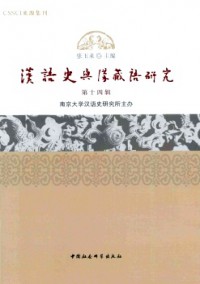汉语成语翻译
前言:本站为你精心整理了汉语成语翻译范文,希望能为你的创作提供参考价值,我们的客服老师可以帮助你提供个性化的参考范文,欢迎咨询。

【摘要】汉语成语承载着中华五千年的文化特色和文化信息.而翻译并非只是两种语言之间的一种简单的对应转换过程,而是一种文化的交流和传递。
因此,在汉语成语英译的具体操作过程中,首先要充分理解汉语成语的内在含义,灵活运用不同的翻译方法,对比英汉语言中习语(成语)的异同,进行适当的结构调整,将汉语成语所承载的文化特色和文化信息最大限度地传译给外国读者。帮助外国读者消除或减少语言及文化障碍就要求译者尽最大努力把汉语成语翻译成外国读者乐于接受的形式。与此同时要在英语中再现汉语文化,这是一个很大的挑战。
把汉语成语翻译成英语,译者们掌握和熟悉两种语言以及其文化是非常重要的。他们必须从风俗和文化背景的角度,通过对汉语和英语语言学和文化差异的理解,尽量去把握成语的内在含义,从而使其观点与原文的精神相一致。本文简单介绍了汉语成语英译的几种方法。
【关键词】汉语成语,英语习语,翻译,文化内涵,源语,目标语
[Abstract]ChineseidiomsbearfivethousandyearsofChineseculturalcharacteristicandtheculturalmessages.Translationisnotonlyonekindofsimplecorrespondenceswitchingprocessbetweentwolanguages,butisonekindofculturalexchangeandtransmission.
Therefore,translatingChineseidiomsintoEnglishisaconcreteoperatingprocess.First,thetranslatorsmustfullyunderstandtheintrinsicmeaningoftheChineseidioms;second,theyshouldutilizeseveraldifferenttranslationmethodsnimblyandcontraststhesimilaritiesanddifferencesbetweentheEnglishidiomsandChineseidioms;third,theyshouldcarryonthesuitablestructureadjustmentandtranslateChineseidiomswhichbearculturalcharacteristicandculturalinformationinmaximumlimitfortheforeignreaders.HelpingtheforeignreaderseliminateandreducelanguageandculturalbarrierrequeststhetranslatortoworkdiligentlytotranslatetheformofChineseidiominthewaythattheforeignreadersaregladtoaccept.Atthesametime,thisisaverybigchallengetoreappearChinesecultureinEnglish.
TounderstandandtranslateChineseidiomsintoEnglish,itisveryimportantforthetranslatorstomasterandwellacquaintthemselveswiththeoriginallanguageandthetargetlanguageandtheircultures.TheyshouldsetoutfromtheaspectsofcustomsandculturalbackgroundsandtrytograsptheconnotationoftheoriginalidiombyunderstandinglinguisticandculturaldifferencesbetweenEnglishandChinesesoastomakehisversionaliketheoriginaltextinspirit.ThisarticleintroducedseveralmethodsontranslationofChineseidiomsconcisely.
[KeyWords]Chineseidioms;Englishidioms;translation;cultureconnotation;originallanguage;targetlanguage
1.Introduction
Abouttranslation,thetranslationtheoreticianshaveproposedmanydifferentviewpoints.InChina,themostpopulartheoryisMr.Yanfu’s“faithfulness,expressivenessandelegance(信,达,雅)”whileinthewesterncountries,themostpopularoneis“equivalentvalue,equivalenteffectandfunctionequivalence(等值,等效,功能对等)”.Theseviewpointsaremutuallyinfluencedandsupplemented.Althoughthetranslatorshavedifferentemphasispoints,theyalladvocatethatthetranslationmustexpresstheconnotationoftheoriginaltextfaithfullyandthestyleoftheoriginalworkshouldreappearintranslation.“所谓忠实表达原文的意义,应指忠实表达原文的字面意义,形象意义,隐含意义三个方面。”[1]p65(So-called“expressingtheindicationoftheoriginaltextfaithfully”,istoexpressthewordingmeaning,theimagemeaningandtheimpliedmeaningoftheoriginaltextfaithfully.)Butnotallexpressions,words,evencharactersintheoriginaltextsimultaneouslyhavethesethreekindsofmeanings.Maybesomeofthemonlyhavethewordingmeaning,butwithouttheimagemeaning;somemayhavethewordingmeaningandtheimagemeaning,butlackoftheimpliedmeaning.Anytwolanguagesareimpossibletobeallcoordinatedcompletely.Therefore,itisimpossibletocompletelyreproducethethreekindsofmeaningsoftheoriginaltext.First,becausetheculturaldifferencesproducethecontradictioninthetranslationprocess,thewordingmeaningortheimagemeaningmustobeytheimpliedmeaning.Second,theimagemeaningoftheoriginaltextcannotbefoundinthetargetlanguage.Sometimestheimagesarethesamebuttheimpliedmeaningsareactuallydifferent.Inthissituation,whatthetranslatorsneedtoconsiderfirstistheaccurateexpressionoftheimpliedmeaning.Theimagesoftheoriginaltextshouldbechangedintootherimagesthattheforeignreadersarefamiliarwith.
2.SeveralmethodsofChineseidiomtranslation
Theexistenceofculturaldifferencesbringscertaindifficultiestotheculturalexchange.Itisalsothebiggestbarrierinthetranslation.Whenthetranslatorstranslateonelanguagetoanother,besidesunderstandingthewritingofthesetwolanguagesthoroughly,thetranslatorsalsohavetounderstandtheculturaldifferencesbetweenthesetwolanguagesprofoundly.
InChinese“Idioms”meansthat“成语:人们长期以来习用的,简洁精辟的定型词组或短句。汉语的成语大多由四个字组成,一般都有出处。有些成语从字面上不难理解,如‘小题大做’,‘后来居上’等。有些成语必须知道来源或典故才能懂得意思,如‘朝三暮四’,‘杯弓蛇影’等。”[2]P130(Sincelongagothepeoplehaveusedhabitually,conciseandsuccinctwordsorshortphrases.MostChineseidiomsarecomposedbyfourcharacters,generallyallofwhichhavethesource.ThemeaningsofSomeidiomsareavailablefromthewordwriting,suchas:‘小题大做’and‘后来居上’;Themeaningofsomeidiomsshouldbegotfromitssourceorallusion.Suchas‘朝三暮四’and‘杯弓蛇影’.)OnChineseidiomtranslation,culturehasagreatinfluenceonthetranslators''''logicalthinkingandtheglossarychoiceofthelanguage.
Thesemanticsofidiomhastheintegrity.Usuallywecannotgetitssignificancefromasinglecharacter.IfmanyChineseidiomsweretranslatedintoEnglishdirectlyaccordingtothewordingmeaning,althoughtheforeignreaderscanunderstandthemeaningofeachcharacter,theystillhavedifficultiesinunderstandingtheoverallsignificanceofthisidiom.
2.1Metaphrase
Metaphraseisamethodthattheimageandtheformsoftheoriginaltextarepreserved,whichcanbetranslatedliterally.Thereadersalsocancatchtheimpliedmeaningbythewordingtranslation.SomeChineseidiomshavesimilarimages,whichtheforeignreaderscanassociatetotheequivalentEnglishidioms.
2.1.1LiteralTranslation
Inidiomtranslation,thereisatendencytofindEnglishequivalentidioms,equivalentinreferentialmeaningratherthanintheimages.ThereasonisthatthetargettextmustbeidiomaticallyEnglish.Therefore,literaltranslationofChineseidiomsisoftenconsiderednon-idiomatic.Aslongasthetranslationconveysavividimageandthereferentialmeaningisnotdistorted,literaltranslationcanintroduceChineseculturetotheworld.Literaltranslationisawaybywhichtherhetoric,nationalandregionalcharacteristicsarekeptinthetargetlanguage.Inthiswaythemeaningandtheformofthesourcelanguageareunchanged.
SomeChineseidiomscanbetranslatedliterallywiththesamevividfigurativeresultoftheoriginalones,whichcanmaketheforeignreadersassociatetotheequivalentEnglishidioms.
Forexample:
⑴对牛弹琴——Toplaythelutetoacow.ThereaderscanassociateittotheequivalentEnglishidiom“tocastpearlsbeforeswine”.
⑵竭泽而渔——Todrainapondtocatchallthefish(theequivalentidiom:Tokillthegoosethatlaysthegoldeneggs.)
⑶易如反掌——Tobeaseasyasturningoverone’shand(theequivalentone:Aseasyasfallingoffalog.)
⑷口蜜腹剑——Tobehoney-mouthedanddagger-hearted(theequivalentone:AJudaskiss)
ThoughtherearenotequivalentEnglishidioms,someChineseidiomswiththeliteralmeaningscanalsobetranslatedliterallywiththeaccurateimages.Suchas:
⑸井底之蛙——Tobelikeafrogatthebottomofawell
⑹史无前例——Tobewithoutprecedentinhistory
⑺七嘴八舌——Withsevenmouthsandeighttongues
2.1.2Replacement
RegardingChineseidiomstranslation,whatmanytranslationbooksdiscussedmainlywasthereplacementtechnique.Sometimes,equivalenttranslationscanbefound,butmostlyonlysimilarones.Usuallythereplacementtechniqueisnecessaryinthefollowingsituations.
(ⅰ)Chineseidiomshavesamemeaningsandculturemessagesasthoseinthetargetlanguage.
TherearemanyChineseandEnglishidioms,whichhavethesameimagesaswellastheexpressionforms.
⑴InChinese,“浑水摸鱼”means“[释义]浑水:浑浊的水。指在浑浊的水中摸鱼。[用法]比喻趁混乱的时机捞取不正当的利益,也作‘混水摸鱼’。”[3]P259ButtheEnglishidiom“tofishintroubledwater”means“takeadvantageoftroubledoruncertainconditionforpersonalprofit”.Thesetwoidiomsaresimilarinbothexpressionformandintrinsicmeaning.
Thesimilaridiomsareasfollows:
⑵赴汤蹈火——Gothroughfireandwater
⑶随波逐流——Togowiththetide
⑷知识就是力量——Knowledgeispower.
⑸眼不见,心不烦——Outofsight,outofmind.
⑹谋事在人,成事在天——Manproposes,goddisposes
⑺空中楼阁——Castlesintheair
⑻充耳不闻——Turnadeafearto
(ⅱ)Chineseidiomssharesimilarmeaningsbutdifferentculturemessagesandimageswiththetargetlanguage.
TheChineseidioms,whichhavesameorsimilarvividanalogywiththeEnglishidioms,shouldbeexchangedintothesameorcorrespondingEnglishidiomsdirectly.Differentlanguageshavedifferentimages.
⑴Forexample:iftranslatorstranslatetheChineseidiom“胸有成竹”directlyinto“haveabambooinone’sstomach”accordingtothewordingmeaning.Theforeignreadersnotonlyhavedifficultiesingettingthemeaningthatthisidiomcontained,butalsohavethewrongassociationeasily.Therefore,thetranslatorsmustdiscardtheimagesinthisidiomandchangethemintotheimagesthattheforeignreadersarefamiliarwith.Soitmaybetranslatedas“haveacardinone’ssleeve”
⑵TheChinesesay“噤若寒蝉”(asmuteasawintercicada)”,yetthenativeEnglishsay,“asmuteasafish”.Fishandcicadahavesimilarfunctionintheaboveexamplesthoughtheyarenotsimilaratall.Asfaras“silence”isconcerned,fishisafamiliarimagetoEnglishspeakers,yettheChinesetendtoassociatethesensewithwintercicada.
⑶TheChineseidiom“瓮中之鳖(theturtleinthejar)”means“[释义]瓮:大坛子;鳖:甲鱼。大坛子中的甲鱼。[用法]形容已在掌握之中,逃脱不了。”[4]P651.ButtheEnglishidiom“likesaratinahole”,whoseimageisamouse,whichisstrandedinahole.Itisinanextremelydifficultsituation.Thesetwoscenesagreewithoutpriorconsultationbuthappentoholdthesameview.Thoughthetranslatorsreplacedtheimage,theforeignreadershavenodifficultytounderstanditsmeaning.
ThesimilarChineseidiomsincluded:
⑷胆小如鼠——Astimidasarabbit
⑸挥金如土——Spendmoneylikewater
⑹东张西望——Lookrightandleft
⑺缘木求鱼——Seekahareinhen’snest
⑻抛砖引玉——Tothrowasprattocatchaherring
So,familiarimagesofthetargetlanguageareoftenusedtoreplacethoseofthesourcelanguage.ItisveryregretthattheforeignreaderscannotunderstandtheexoticatmosphereofChineseculture.
(ⅲ)Chineseidiomssharesimilarimagesbutdifferentculturemessagesandconnotationwiththetargetlanguage.
SomeChineseidiomsandEnglishidiomsarealmostthesameintheexpressionform,butthecommendatoryorderogatorymeaning,whichtheidiomscontained,isdifferent.Sotheycannotbemutuallytranslated.
“习俗文化指的是贯穿于日常社会生活和交际活动中由民族的风俗习惯形成的文化。.[5]P64”(Thecustomculturereferstotheactivities,whichformedbynationality''''smannersandcustomsinthesocialdailylife)Asaresultofthecustomculturedifferences,thetranslatorsmustpayattentiontotheanimalwordsintheidiomswhosemeaningsaredifferent.Forexample,inChina,thepeopleoftenthinkthedogisloathing.Therefore,mostdog-relatedidiomsincludethederogatorymeaning.
⑴Forexample,“狐朋狗友(Packofscoundrels)”,“狼心狗肺(heartlessandcruel)”andsoon.Butinthewesternnation,thedogwasconsideredashuman''''sgoodfriends.Forexample:“helpalamedogoverastile(雪中送炭)”,“loveme,lovemydog.(爱屋及乌)”andsoon.
⑵Forexample:theChineseidiom“笑掉大牙”includesthemeaning“ridicules”.TheEnglishidiom“tolaughoffone’shead”isonlytheexpressionof“laugh”or“laughloudly”.Itisaneutralword.Thesetwoidiomslookverysimilarliterally.Butthecommendatoryandderogatorytermsoftwowordsaredissimilar.Sotheycannotbemutuallytranslated.
⑶TheChineseidiom“说曹操,曹操到(whenyoumentionCaoCao,hesoonarrives)”means“Iwasjusttalkingaboutyou!”itdidnotbringthederogatorymeaning,butEnglishidiom“talkofthedevilandhewillappear”hasthederogatorymeaning。
⑷Ifyoutranslate“亡羊补牢”toEnglishproverb“lock/closethestabledoorafter/whenthehorsehasbeenstolen”.Thedirecttranslationmistakesthemeaningof“亡羊补牢"whichmeans“stillhasnotbeenlate“!ButthisEnglishproverbexpressedthemeaning“hasalreadybeenlate,beyondanyhelp”。Therefore,亡羊补牢cancorrespondtotheEnglishproverb“astitchintimesavenine”or“betterlatethannever”
⑸IntheChineseidiom“令人发指”andtheEnglishidiom“tomakeone’shairstandonend”,[6]P164theformeronemeans“tomakethepersonextremelyangry“,thelatteronerefersthat“frightenorhorrifysomeone”.So‘令人发指’canbetranslatedinto“makethebloodboil”.
2.2Paraphrase
Paraphraseisamethodthattheoriginalcontentsarepreserved,buttheformsarechangedinthetargetlanguage.
WhenChineseidiomsaremetaphrasedintothetargetlanguage,readersstillcannotgraspthemeaningsduetoculturaldifference.“有些习惯用语带有很浓的中国文化色彩…对于这部分成语,字面翻译是无法为外国读者所接受的。如加上许多解释性的文字,就失去了成语精粹的特点。最好的办法就是绕开其文化背景,译出其真正的内涵意义。”[7]P139(SomeidiomshavetheChineseculturecharacteristic..Regardingthiskindofidioms,thewordingtranslationisunablefortheforeignreader’sacceptance.Ifweaddmanyexplanations,theidiomcharacteristicwilllose.Thebestmethodistodiscarditsculturalcontextandtranslateitsconnotation.)
Thus,paraphraseisneededtokeepmeaningstopointandkeepconnotationinlinewiththecultureinthetargetlanguage,thoughitmayfailtoshowthestyleoftheoriginallanguage.ItisagoodwaytoconveytheconnotationofChineseidioms.
2.2.1Negation
Mr.YeZinanmentionsnegationin《高级汉英翻译理论与实践》.Hegivesthedefinitionlikethis:“反面着笔法(negation)有时也称正说反译或反说正译。其基本概念是原文从一个角度下笔,译文恰恰从相反的角度下笔。”[8]P80(Sometimesnegationalsowascalledthattoexpresspositivelybutbetranslatednegativelyortoexpresspositivelybutbetranslatednegatively.Althoughthebasicconceptoftheoriginaltextstartswritingfromanangle,thetranslationexactlystartswritingfromtheoppositeangle.).
Sometimesthetranslatorsutilizethenegationtechniquejusttoformanexquisitearticle.
Forexample:
⑴“塞翁失马,焉知非福?”isarhetoricalquestion,butthetranslationis“Dangerisnextneighbortosecurity.”whichisanaffirmationdeclarativesentence.
⑵我很高兴看见你安然无恙。——Iamgladtoseeyousafeandsound.
InChinese,“无恙”means“haven’tgotillness”,whichisexpressednegatively.Butitstranslation——“sound”,whosemeaningis“健康”,isexpressedpositively.
“英语中有许多含有否定或半否定语气的词语,在翻译中可充分利用,以便使译文符合英语习惯,并使句子结构多样化。”[9]P60(TherearemanydenialorhalfdenialexpressionwordsandexpressionsinEnglish.Iftheyarefullyusedintranslation,thetranslationwillconformtotheEnglishcustomandthesentencestructuresaremorevaried.)
⑶Forexample:“木已成舟”inChineseisfirmlyadeclarativesentence.ButitsEnglishtranslationis“thingsdonecannotbeundone”whichexpressestheidenticalmeaningfromthedenialdeclarativesentenceangle.
⑷“不入虎穴,焉得虎子?”isarhetoricalquestion,whosetranslationis“nothingventure,nothinghave”.Itisanaffirmationsentence.
⑸他开车的时候心不在焉,几乎闯祸。——Hisabsenceofmindduringthedrivingnearlycausedanaccident.
Thenoun“absence”concealsthemeaningofnegation.ItagreedwiththelogicsofthenativeEnglishreaders.
Mr.YeZinanhadadded“有时采用这种方法却是译者为了行文优美的目的,不用这个反面着笔的方法译文并非不通。反面着笔的方法在实际翻译中如果用的恰到好处,常常会使译者绝处缝生,是英汉翻译中非常有用的一个技巧。”[10]P81(Sometimesthetranslatorusesthismethodinordertoreachagoalofforminganexquisitearticle.Soeveniftheydon’tusethemethodofnegation,othertranslationmethodsstillwork.IfthetranslatorusesNegationproperly,hewillfindhiswayoutfromanimpasse.ItisausefulskillinChineseandEnglishtranslation.)
2.2.2Substitution
“Substitution”refersto“someChineseidiomsareabstractwhiletheequivalentEnglishidiomshaveconcreteimages;someChineseidiomshaveconcreteimagesbuttheequivalentEnglishonesarealwaysabstract.”
2.2.2.1Substituteabstractconceptforconcreteimages
TheChineseidiomisquiteabstract,whiletheEnglishidiomisconcrete.Becauseitsvividimagemayenablethereadertorealizeflavor.
⑴Forexample:“做贼心虚”maybetranslatedthat“abadconscienceisjustlikeasnakeinone''''sheart”.Weuse“asnakeintheheart”totransmit“心虚”—theafraidandguiltyconscienceofthethief.
⑵ThecorrespondEnglishidiomof“事与愿违”is“allyourswansaregeese”.Whensomeonefinedoutallswansareordinarygeeseandthedisappointedfacialexpressioniscontrarytowhatheexpects.
⑶“不知所措”correspondstheEnglishidiom“allatsea”.Shallwetrytoimaginethesituationthatapersonintheboundlesssea.Itishelpless.
⑷Theidiom“入乡随俗”maybetranslatedinto“wheninRome,doastheRomansdo.”WhyinRomebutnototherplaces?Buttheforeignreadersareveryfamiliarwiththisidiom.Wechange“乡(village)”to“Rome”whichtheforeignreadersaresofamiliarwith.CertainlytheycanaccuratelyunderstandintrinsicmeaningoftheChineseidiom“入乡随俗”.
Thesimilaridiomsareasfollows:
⑸青出于蓝胜于蓝——Thepupiloutdoesthemaster.
⑹不择手段——Byhookandbycrook
⑺不辞而别——TotakeFrenchleave.
2.2.2.2Substituteconcreteimagesforabstractconcept
“中国人特别喜欢用具体形象词语比喻抽象的事物,以物表感,状物言志。”[11]P30(TheChineselikeusingthevividconcretewordsandexpressionstosubstituteabstractthings,expressingtheirfeelingsandwillsbythings)SomeChineseidiomsusetheconcreteimagesorthingstodescribetheabstractconcepts.Therefore,intranslationprocess,thetranslatorsshouldboldlydiscardtheseimagesandtranslatetheconnotationofthemappropriately.
⑴Forinstance:ifthetranslatorstranslate“顺手牵羊”directlyinto“walkoffwithasheep”accordingtothewordingmeaning.TheforeignreadersmaymisunderstandthatthethievesinChinaonlystealthesheepbutnototherthings.ButChinesereadershaven’tgotsuchmisunderstanding.Inthisidiom,“thesheep(羊)”isaconcretethingactuallywhichrefersto“others''''thingperhapstheproperty”.Itexpressesanabstractconceptwiththeconcretething.
⑵Whenwetranslatetheidiom“狗急跳墙”,wedonotneedtodescribespecificallythat“howanxiousthedogis(狗急)”,and“howittojumpthewall(跳墙)”.Aslongasweexpresstheintrinsicmeaning,theforeignreadersmaybeclearataglancewhenwetranslateitas“dosomethingdesperate”.
⑶Perhapswehavetohavealengthyspeechwhentranslate“明火执仗”.Butthedirecttranslationis“doevilthingsopenly”.Theforeignreaderscanunderstanditsintrinsicmeaningconcisely.
⑷Iftranslate“守株待兔”inadetailedway,dowehavethenecessitytotellthefablestorywhichconcealsthisidiomindetails?Evenwetoldthisstory;theforeignreadersalsocannotrealizetheimplication,whichthisidiomcontains.Ifwetranslateitdirectlylikesthis:“trusttothechanceandstrokeofluck”.Theforeignreadersmayunderstandtheimplicationeasily.TheonlyregretthingisthatitlackstheChinesecharacteristic.
BecausethenativeEnglishreaderscan’tacceptthefigurativeimagesofsomeChineseidioms,weshouldtranslatetheseidiomsflexiblyaccordingtotheiractualmeanings.
⑸Forexample,ifwetranslatetheidiom“眉飞色舞”into“hiseyebrowsareflyingandhiscountenanceisdancing”,thenativereaderswillnotonlyfeelconfusedandpuzzled,theywillalsothinkitfunnyandridiculous.
Moresimilaridiomsare:
⑹粗枝大叶——Tobecrudeandcareless.(Deadtranslation:withbigbranchesandlargeleaves)
⑺灯红酒绿——Dissipatedandluxurious.(Deadtranslation:withredlightsandgreenwine)
⑻开门见山——Tocomestraighttothepoint.(Deadtranslation:toopenthedoorandseethemountain)
⑼大张旗鼓——Onalargeandspectacularscale.(Deadtranslation:tomakeagreatarrayofflagsanddrums)
⑽风雨飘摇——Beingunstable.(Deadtranslation:Thewindandrainarerocking)
2.2.3Additionalremarks&Note
Thereadersneedadditionalremarksandnoteifthemeaningoftheidiomisnotcompletelyunderstood.
2.2.3.1Additionalremarks
“Additionalremarks”refersto“toincreasetherelatedinformation,whichmayhelpunderstandtheintrinsicmeaningoftheidiominthetranslationprocess.”Itisusuallyconcise.
Forexample:
⑴Thetranslationof“事后诸葛亮”is“tobeawisemanlikeZhugeLiangaftertheevent.”Asweknow,ZhugeLiangisarenownedcharacterintheChinesehistory.Heisthesymbolofwisdom.Buttheforeignfriendsmaynotnecessarilyknowwhoheis.Therefore,thetranslatorhastoexplainwhoZhugeLiangis.Theforeignreadersareeasiertounderstandtheconnotationoftheidiom.
⑵你这是班门弄斧。——“YouareshowingoffyourproficiencywithanaxebeforeLubanthemastercarpenter.”
Inordertohelpforeignreadersunderstandthemeaningoftheidiom,translatorsadd“showingoffyourproficiency“toindicatetheconnotationof“班门弄斧”andalsoaddsomebackgroundknowledgeofthisidiom,thatistosay,LuBanisamastercarpenter.Themethodoftranslationnotonlymakesthetranslationprecisebutalsotakesthemeaningexpressionandtheculturalexchangeintoaccount.
⑶Like“东施效颦”maybetranslatedas“TungshihimitatesHsishih”(HsishihwasafamousbeautyintheancientkingdomofYueh.Tungshihwasanuglygirlwhotriedtoimitateherway).Itsconcealedmeaningis“imitatesotherstomakeafoolofoneself”.
⑷Ifwetranslate“八仙过海”to“theeightfairiescrossedthesea”withoutintroducing“八仙(theeightfairies)”arecharactersintheChinesemythstory,thereadersshouldbepuzzled.Thereforewemustaddtheannotationbehindthetranslation:theeightfairiesofTaoisminChinesefolklore.
2.2.3.2Note
“Note”refersto“toaddtherelatedinformationandbackgroundsoftheidiomsindetails.”Itisusuallythefootnotes.
Althoughthestructureissimple,theimpliedmeaningisprofound.Therefore,theycannotbesolelycomeuptheunderstandingandtranslationfromasingleword.SomeChineseidiomsarerichinChineseculturalbackgrounds,amongwhichcontaintheancientChinesenamesfrommythologyandhistory.Ifwetranslatethiskindofidiomsliterally,thenativeEnglishreaderswillnotunderstandthem.Ifwetranslatetheidiomswithmoreexplanation,thetranslationswilllosstheidiomcharacteristicofbeingconcise.Inthiscase,we’dbettertranslatetheidiomfreelywiththeactualmeaningratherthanfocusonitsculturalbackground.Ifweusethemethodofdirecttranslationtotranslatethiskindofidioms,itwillbringdifficultiestothenativeEnglishreader''''sreadingandunderstanding.Moreover,evenifweusethemethodofsignificancetranslation,westillcan’tvividlyreappeartheliteraryreferenceandtheculturalconnotationoftheChineseidioms.
Someforeignreadersdon''''tknowthemeaningoftheChineseidiomsfromtheparaphrase.Buttheymaybewonderingthestoriesrelatedtothem.Inthiscase,concisenoteisnecessarytocompensatetheculturaldifferencesanddecreaseculturalloss.Thesemethodsshouldbecautiouslyusedintheavoidanceoftediousnessandtheexplanatorynotesareusuallyfootnotes.
Suchas:
⑴“画饼充饥”——Allayinghungerwithpicturesofcakes
Inthethreekingdomsperiod(220-280),thekindoftheWei,CaoRui,wantedtoselectaverycapablemantoworkforhim.Hesaidtohisministers:“whenchoosingatalentedperson,alwaysbewareofonewithafalsereputation.Afalsereputationisjustlikeapictureofacake,itcan’trelieverhunger.”later,thisidiomcametobeusedtomeancomfortingoneselfwithunrealisticthoughts,withoutsolvingpracticalproblems.
⑵“叶公好龙”——LordSheh’sloveofdragons
Shehwassofondofdragonsthatheadornedhiswholepalacewithdrawingsandcarvingsofthem,butwhenarealdragonheardofhisinfatuationandpaidhimavisit,hewasfrightenedoutofhiswits.
Thetranslatorshavetoaddafootnotetothisidiom,andtheforeignreaderscangettheconnotationfromit.
Moresimilaridiomsareasfollows:
⑶毛遂自荐——MaoSuirecommendinghimself
Inthewarringstatesperiod,thestateofQinbesiegedthecapitalofthestateofZhao.DukePingyuanofZhaoplannedtoasktherulerofthestateofChupersonallyforassistance.Hewantedtoselectacapablemantogowithhim.AmancalledMaoSuivolunteered.WhenthenegotiationsbetweenthetwostateswerestalledbecausetherulerofChuhesitatestosendtroops,MaoSuiapproachedhim,brandishingasword.Inthatsituation,therulerofChuagreestohelpZhao,againstQin.
SotheChineseuse“毛遂自荐”tomeanthat“tovolunteerone’sservice”
⑷“一鼓作气”——Rousingthespiritswiththefirstdrumroll
Duringthespringandautumnperiod,anarmyfromthestateofQiconfrontedonefromthestateofLu.AfterthefirstrollofdrumsfromtheQisidetosummonLutobattle,theLurulerwantedtoattack.ButhiscounselorCaoGuisaid“weshouldwaituntilthethirddrumroll,sire.”aftertheQisidehadbeatenthedrumsthreetimes,theLuarmyattackedanddefeatedtheQiarmy.Afterthebattle,thekingaskedCaoGuithereasonsforhisoddadvice.CaoGuianswered,“fightingneedsspirit.Theirspiritwasarousedbythefirstrollorthedrums,butwasdepletedbythesecond.Anditwascompletelyexhaustedbythethird.Westartedtoattackwhentheirspiritwasexhausted.That’swhywewon.”
So,later,thisidiommeans,“togetsomethingdonewithonesustainedeffort.”
2.2.4Omission
MsHuAipinghasmentionedthat“汉语成语有些是对偶词组,前后两对含义相同,修辞上优美匀称,尤其是在四字结构的成语中,多呈现‘同义反复’的现象。这种现象在崇尚简洁的英语中是最忌讳的。”[12]P69(SomeChineseidiomsarethematchedphrases.Themeaningsofthetwopairsofwordsaresame.Theyareexquisiteandsymmetricalinrhetoric.Particularlythefourcharactersstructureidiomspresentthephenomenonof‘tautology’.ThiskindofphenomenonisatabooinEnglish,whichadvocatesuccinctness.)
TheimagesinChineseidiomsarevivid.Manyidiomshavethecompoundantithesisstructure.Thoughtheirexplanationsaredifferent,theconcealedmeaningsaresame.Regardingthiskindofidiomtranslation,Inordertoavoid“tautology“,translatingthemeaningofimageisok.
Forexample:
⑴近朱者赤,近墨者黑——Onewhostaysnearvermiliongetsstainedred./Whenyoutouchred,youbecomered.TherearesomesimilarexpressionsintheEnglishspeakingcountries:“onetakesthebehaviorofone’scompany.”or“onetakesontheattributesofone’sassociates.”or“watchthecompanyyoukeep.”
⑵“无影无踪”,whosemeaningis“tovanishwithoutatrace”,themeaningof“无影”is“withoutanimage”,“无踪”means“withoutatrace”.Hence,“withoutatrace”isenoughtoexpressthewholemeaningofthisidiom.
⑶忽闻有人在牡丹亭畔,长吁短叹。(罗贯中《三国演义》)——suddenlyheheardarustleinthepeonypavilionandsomeonesighingdeeply.
Here,“长吁”and“短叹”havethesamemeaningof“sighingdeeply”.
⑷“这断子绝孙的阿Q!”远远地听得小尼姑的带哭的声音。(鲁迅《阿Q正传》)——“AhQ,mayyoudiesonless!”Soundedthelittlenun’svoicetearfullyinthedistance.
Inthetranslation,“diesonless”canexpressthemeaningsofboth“断子”and“绝孙”.
⑸她只觉得头晕眼花,辨不出路径——Shefelttoodizzytorememberthewayshehadcome.InChinese,“头晕”and“眼花”havethesamemeaningof“dizzy”.
Thesimilaridiomsare:
⑹愁眉苦脸——Gloomyfaces
⑺天长地久——Eternallikeskies
⑻五光十色——Multicolored
⑼生龙活虎——Burstingwithenergy
⑽字斟句酌——Weigheveryword
3.Conclusion:
Nevertheless,translationmethodsarenotfixed.OneChineseidiommaybetranslatedinseveraldifferentways.Propertranslationsaretobechosenbyconsiderationofvariouscontextsandreaders’acceptability.
Mr.TanZaixihasexpressedEugeneA.Nida’sviewasfollows:“任何能用一种语言表达的东西都能够用另一种语言来表达;在语言之间,文化之间能通过寻找翻译对等语,以适当方式重组原文形式和寓意结构来进行交际。”[13]P20(Everythingthatcanbeexpressedinonelanguagealsocanbetranslatedintoanotherlanguage.Wecanfindouttheequivalentonebetweentwolanguagesandbetweentwocultures,andthendothecommunicationsbythewaywhichadjustthestructuresinaproperway.)TheChineseidiomsarethecreamofournationalculture.IntranslatingthemintoEnglish,weshouldtranslatenotonlythedenotations,butalsotheculturalconnotations.Ifnecessary,weshouldadjustthesemanticstructuressothatwecandecreasetheculturelossaslittleaspossible.Inthisway,wecanpromoteandexpandtheexchangeabroadoftheChineseculture.
Eugene.Nidathoughtthat,“对于真正成功的翻译来说,双文化能力甚至要比双语能力更为重要。”[14]P70(Regardingthesuccesstranslationthat,thedoubleculturalabilityevenmustbemoreimportantthanthebilingualability)Therefore,translatingChineseidiomsintoEnglishisaconcreteoperatingprocess.First,thetranslatorsmustfullyunderstandtheintrinsicmeaningoftheChineseidiom;second,theyshoulduseseveraltranslationmethodsflexibly,contrastthesimilaritiesanddifferencesbetweenEnglishandChinese,adjustthestructuresuitably;last,trytheirbesttotranslateChineseidiomswhichbeartheculturalcharacteristicandinformationtotheforeignreaders.HelpingtheforeignreaderseliminateandreducelanguageandculturalbarrierrequeststhetranslatortotranslatetheformofChineseidiomsdiligentlythattheforeignreadersaregladtoaccept.AtthesametimeitisabigchallengetoreappearChinesecultureinEnglish.
Translationisnotonlytwolanguagesexchanges,butalsoonekindofcross-culturalexchange.Itsgoalistobreakthebarrierbetweenthetwodifferentlanguages.
Bibliography(Reference):
⑴裘乐英英汉文化差异和习语翻译[J]四川师范学院学报2002P65
⑵现代汉语词典2002年增补本[C]商务印书馆2002P130
⑶马春来等实用汉语成语词典[C]上海远东出版社1995P259
⑷同⑶P651
⑸同⑴P64
⑹张勇先实用英语惯用法教程[M]中国人民大学出版社1998P164
⑺冯庆华实用翻译教程[M]上海外语教育出版社2000P139
⑻叶子南高级英汉翻译理论与实践[M]清华大学出版社2001P80
⑼吕瑞昌,喻云根等汉英翻译教程[M]陕西人民出版社1983P60
⑽同⑻P81
⑾陈宏薇,李亚丹新编汉英翻译教程[M]上海外语教育出版社2004P30
⑿胡爱萍试论汉语成语英译中的归化和异化[J]阜阳师范学院学报2004P69
⒀王武兴汉译英中不同社会文化信息的转换[J]中国翻译2004P20
⒁曾奇从文化翻译观来看汉语习语的英译[J]湖北民族学院学报2001P70



